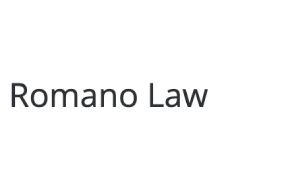If someone makes humorous use of your trademark on their own commercial product, can you sue them for trademark infringement or are they entitled to the First Amendment’s free speech protection?
In the case of Jack Daniel’s Properties v. VIP Products, the U.S. Supreme Court is currently deliberating whether the humorous use of a trademark on a commercial product constitutes trademark infringement or is protected under the First Amendment’s right to free speech. This blog analyzes the case and its significance in determining the intersection of free speech and trademark laws.
CASE BACKGROUND
The dispute revolves around Jack Daniel’s, the largest American whiskey manufacturer, and VIP Products, the second-largest American dog toy manufacturer. VIP Products created a plastic toy resembling Jack Daniel’s iconic whiskey bottle, but with altered labels. Instead of “Jack Daniel’s,” the toy reads “Bad Spaniels,” and the label’s “Old No. 7” and “Tennessee Sour Mash Whiskey” are replaced with “The Old No. 2 on your Tennessee Carpet.” Moreover, the toy humorously substitutes the promise of 40% alcohol by volume with “43% poo” and “100% smelly.”
LEGAL PROCEEDINGS
Jack Daniel’s sued the toy company for claims of trademark infringement and dilution. Initially, the district court ruled in favor of VIP Products, considering the toy a humorous parody protected by the First Amendment. However, the U.S. Court of Appeals for the 9th Circuit reversed this decision. The court held that the humorously conveyed message warranted heightened scrutiny to ensure that trademark protection did not impede free speech values. Additionally, the court determined that VIP Products fell under an exception for “noncommercial” uses, safeguarding them from dilution claims.
Jack Daniel’s appealed to the Supreme Court.
ARGUMENTS FROM BOTH SIDES
Jack Daniel’s argued that a trademark is a property right, which, by its very nature, restricts speech. Trademark registration generally provides a limited monopoly on a right to use a name or mark associated with the mark owner’s goods or services. Jack Daniel’s further contended that consumers might be confused and mistake the dog toy for an actual Jack Daniel’s product.
VIP Products, in contrast, argued that no reasonable person would confuse the toy with Jack Daniel’s whiskey. It maintained that the toy is a humorous and expressive work, and thus immune from the whiskey company’s infringement claims.
WHY IS THIS CASE IMPORTANT?
No matter how the Supreme Court decides, this will hold substantial significance as it seeks to strike a balance between the First Amendment’s protection of free speech and trademark laws aimed at safeguarding brands and intellectual property. While the Lanham Act generally provides trademark owners with protection against confusion arising from another party’s use of their mark, the court must also consider the allowances for artistic or editorial parody that are not closely tied to commercial use and do not create confusion.
THE COURTS’ APPROACH
Courts typically employ the 2-prong “Rogers Test” to balance the interests of mark owners and free speech protections. Under the Rogers Test, the title of an artistic work is protected under free speech if: (1) the title of the work has some artistic relevance to the underlying work and (2) that the title is not explicitly misleading as to the source of the content of the work. Notably, this test typically only applies to non-commercial marks. That is, the court is more lenient to provide a free speech exception if the mark is used in noncommercial context.
Here, because VIP’s use of the mark for labeling a product was aimed at profitable sales, Jack Daniel’s argued that the “noncommercial” exception should not apply.
CONCLUSION
The Supreme Court heard oral arguments in March 2023 and is expected to issue a decision soon. This blog post will be updated to reflect any developments in the case.
Trademark infringement matters can be complex and typically require a detailed analysis of the law and facts. If you are concerned that your trademark has been infringed or if you are in need of defending against such a claim, consult with an attorney what is the best course of action to ensure your rights are protected.
The content of this article is intended to provide a general guide to the subject matter. Specialist advice should be sought about your specific circumstances.




